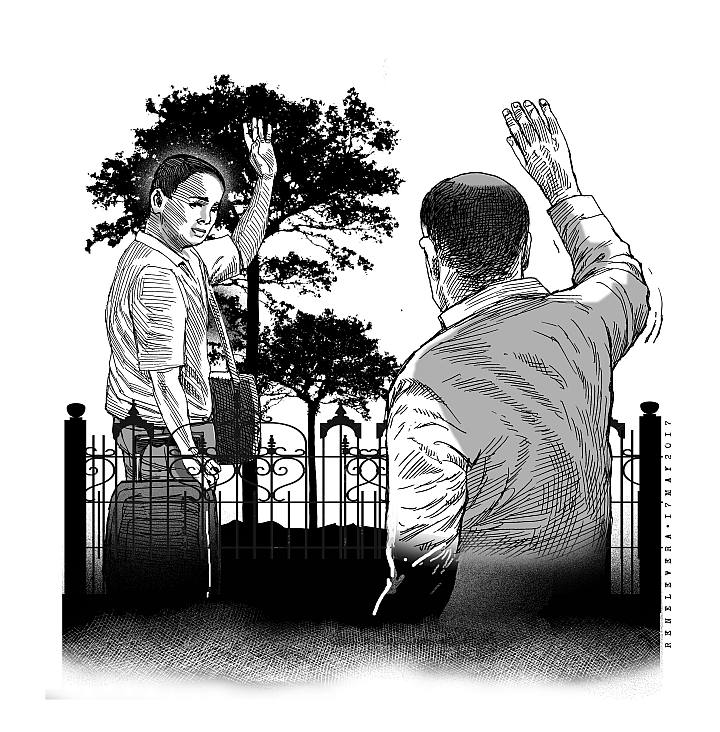
Departures — life has many, too many of them. As well as arrivals, of course. But departures almost always entail sorrow, because they put an end to our desire always to have around us someone whose presence we cherish.
When I was a student in the seminary, I always dreaded the knock on the door of a colleague, bag beside him, calling to say goodbye. In due time I myself left, but I made my farewells on the night before because the prefect took me to the airport at cockcrow of the next day.
We, all of us, must contend with departures. The day our son went to medical school marked the end of his stay at home, which after that became for him a place merely for short-time visits, especially after he acquired a family of his own. Many of our friends – like my buddies in the seminary — leave and disappear from our lives, a number of them for good, or almost, because they probably would surface on social networking sites, where we see them completely changed, indistinguishable from the way they looked when last we shook hands with them with a lump in the throat, something we too experience now when we look at ourselves in the mirror. What did they, indeed, what did we lose? Time, you thief!
Those who shared our youth, who left and never reappeared, shall always possess the eternal summer on the day of their departure, which, because of kindness, and through a willing suspension of disbelief, we may concede to them when by accident we see them again on Facebook.
As to the former, perhaps my nostalgia of their leaving finds expression in Ezra Pound’s translation of Li Po’s little poem, “Separation on the River Kiang”:
Ko-jin goes west from Ko-kaku-ro,
The smoke flowers are blurred over the river.
His lone sail blots the far sky.
And now l see only the river,
The long Kiang, reaching heaven.
The one speaking in the poem, probably Li Po himself, watches his friend Ko-jin leave Ko-kaku-ro in his sailboat going west. His eyes follow the boat so fixedly that he does not notice the flowers growing on the river bank, which at the most seem blurred and hazy like smoke. As the boat sails down with the current, it gets smaller and smaller until it disappears, and he sees only the River Kiang, which seems so long that it reaches heaven.
What a similarly touching moment the apostles must have felt upon the departure of Jesus, with whom it seemed they had spent almost a lifetime — eating, exchanging stories, singing and praying together, who taught them the truth and showed them God’s love, for whom they had learned to give up everything.
Mark writes about Jesus’ departure in a brief, matter-of-fact manner: “And so the Lord Jesus, after he had spoken to them, was taken up into heaven: there at the right hand of God he took his place, while they, going out, preached everywhere, the Lord working with them and confirming the word by the signs that accompanied it.”
John, however, gives a more intimate account of the moment before Jesus’ Ascension. Jesus directly addressed the sorrow of the apostles at his leaving: “[Y]ou are sad now, but I shall see you again, and your hearts will be full of joy, and that joy no one shall take from you. When that day comes, you will not ask me any questions.”
Besides, as Christ’s believers realize, Jesus did not really leave. As he promised, he has remained in a real way in the sacraments, especially the Holy Eucharist. St. Leo the Great sums it up: “And so our Redeemer’s visible presence has passed into the sacraments.”
The apostles looked at Jesus as he disappeared into the sky as intently as Li Po did at his friend whose sailboat vanished into the horizon. But in their case, the apostles continued to see Jesus. The eyes of faith, the bringer of joys without question, had replaced their human eyes.
If every departure entails the question why, Jesus has promised a time, or a moment in eternity, itself only one limitless moment, when no one asks the question why, because no one has need for it, which becomes unnecessary in the presence of joy.